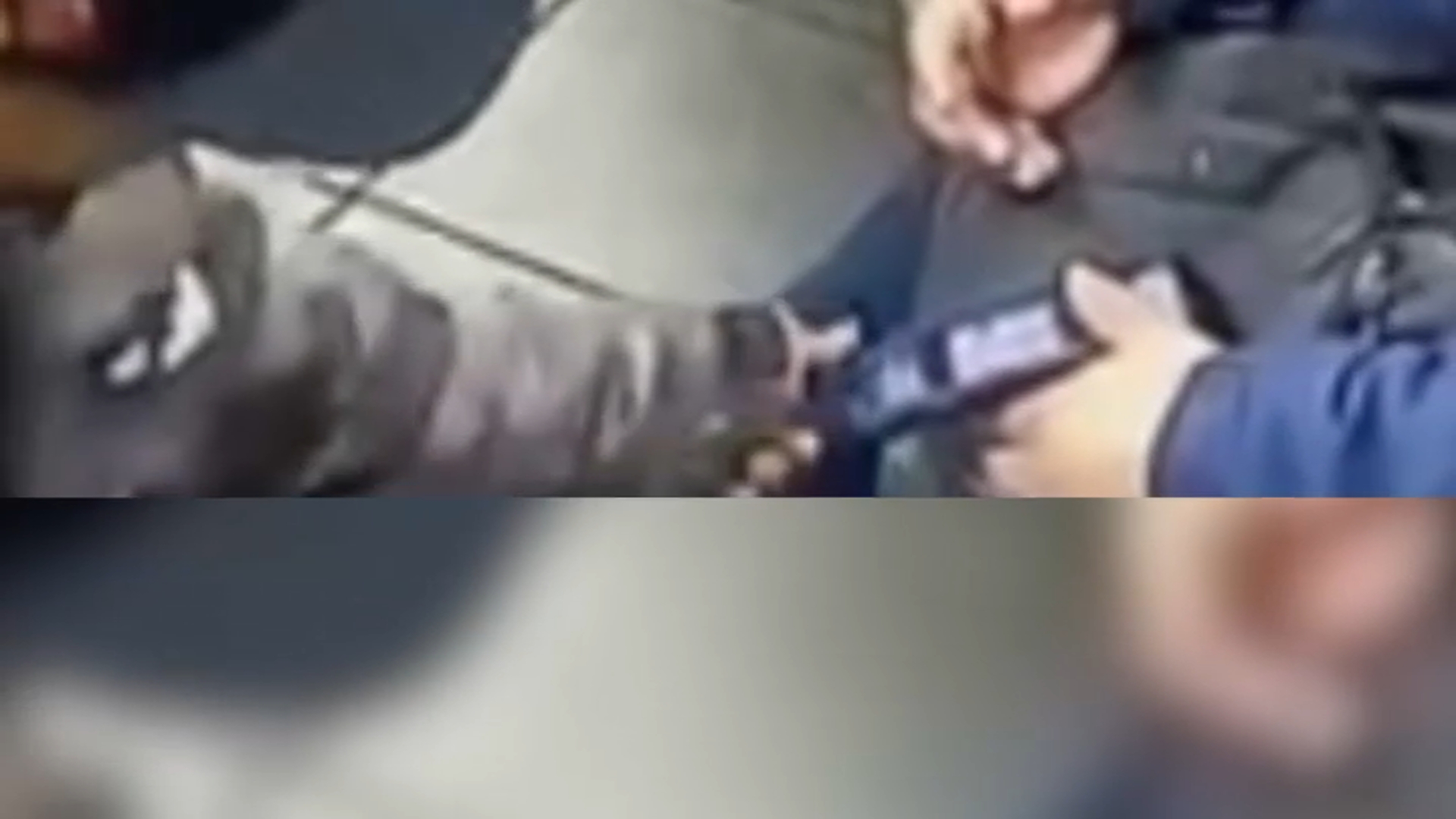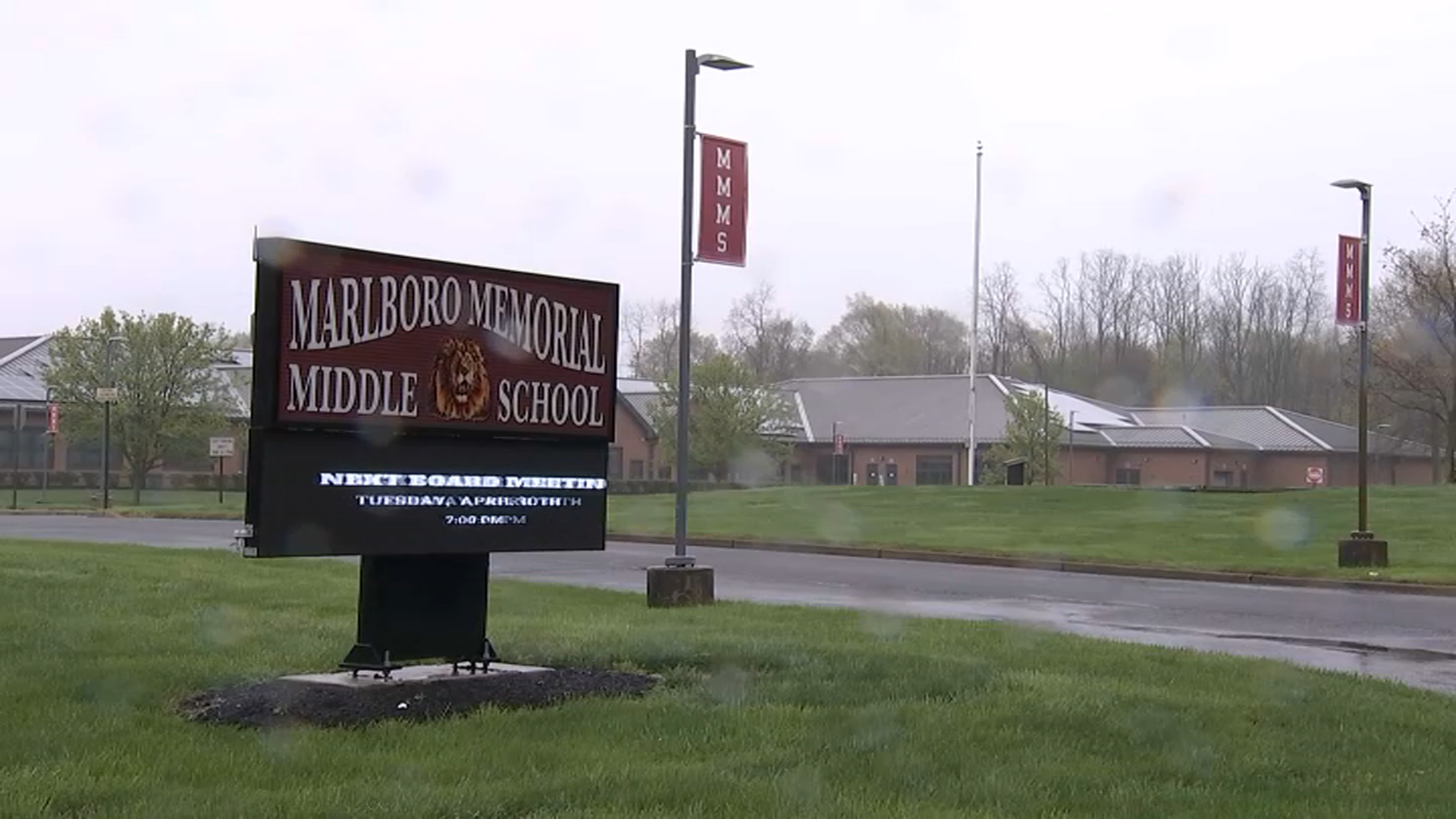The top doctor at Rikers Island has come out swinging at city district attorneys, saying they've failed to appreciate the "public health disaster" unfolding before their eyes.
Rikers Island chief physician Ross MacDonald took to Twitter Monday night to strike back at New York's five district attorneys and special narcotics prosecutor, who sent a letter to the City expressing concerns about releasing certain inmates to decrease the spread of COVID-19 in jails.
"I can’t presume to tell you how to do your job, but neither should you presume to be experts in correctional health or corrections. I am raising this alarm for a reason. I simply ask that in this time of crisis the focus remain on releasing as many vulnerable people as possible," he said.
Prisoners have slowly been released from tri-state jails over the past week as corrections officials raised the alarm about the rapid march of coronavirus through our jails. In New York City, the mayor said that 900 inmates had been released already, and that more would be released soon. In New Jersey, up to 1,000 could soon be released.
The City DAs wrote Mayor Bill de Blasio Monday saying they had been reviewing release requests, and in some instances found people serving time for domestic violence or sex offenses had been flagged for release. "We should not have to make release decisions that we know will put communities at risk," they said.
MacDonald responded on Twitter, saying Rikers had gone from one case to 200 cases in 12 days, despite the jail's very best efforts at containment. He warned the city that if many inmates got sick, they would need beds and ventilators in New York's already overburdened hospitals.
News
"I can reassure my patients that I will get them the best possible care, but we expect that 20% of those infected will need our overburdened hospitals and 5% will need ventilators that many other citizens will also need," he said.
Read on for more details about the release of inmates in the tri-state to battle COVID-19 spread.
NEW YORK
Mayor Bill de Blasio said Tuesday that as of Monday night, 900 inmates in jail or prison facilities run by the city had been released since the start of the outbreak, and that more would be released soon.
With the continued releases, NYC's incarcerated population was below 5,000 for the first time since 1949, de Blasio said. He also said after the inmates are released, there's "definitely a follow up effort between the Department of Corrections, the Mayor's Office of Criminal Justice, and the NYPD" to monitor them. Other agencies also get involved, de Blasio said, as some of the released inmates become homeless, meaning the Department of Homeless Services or Department of Health would be tied in.
Earlier in the month, the mayor said that inmates in the city who are "in immediate danger" of contracting COVID-19 should be immediately released, and had plans to potentially release more than 1,000 of those incarcerated at Rikers Island.
The mayor said there were hundreds of inmates who had been listed as potential releases, but the city needed permission from other agencies to do so. There were approximately 100 inmates at Rikers Island awaiting trial who could be released by the city's district attorneys, and around 700 technical parole violators who could be released with permission from New York state.
De Blasio said that among those the city has the authority to release are inmates who are serving sentences less than a year, or have less than a year remaining on their sentences. However, any individuals with violent crimes like domestic assault or sexual charges will not be released; only those convicted on misdemeanors or nonviolent felonies will be eligible for release.
The mayor previously said that those inmates who get released are "high-risk for COVID-19 related complications and low-risk of re-offending. Most of the remaining individuals are parole re-offenders and under the discretion of the State. The City is working with the State to pursue their release, as well."
Inmates being looked at for release were either over the age of 70, or had underlying health conditions that made them more susceptible to contracting COVID-19.
On March 21, the New York City Correction Board called on criminal justice leaders to urgently decrease the prison population and release people who were at high risk of dying of COVID-19 amid a growing "crisis" in the jails.
"Given the nature of jails (e.g. dense housing areas and structural barriers to social distancing, hygiene, and sanitation), the number of patients diagnosed with COVID-19 is certain to rise exponentially," the BOC letter said.
As of March 25, there were at least 75 cases of coronavirus reported among inmates at Rikers Island, out of a population around 5,000, according to the Legal Aid Society. That's an infection rate of nearly 1.5 percent, which may not sound like much but is significantly higher than New York City's overall rate of 0.2 percent. There were an additional 80 cases among staff members, the Department of Correction. According to the department, 103 inmates in their jails have tested positive.
Brooklyn public defender Scott Hechinger has been raising the alarm, saying he is concerned about some of his high-risk clients who are currently detained.
The mayor's office said Correctional Health Services is now screening detainees before entering and leaving city jail facilities. Those who show symptoms while entering will be quarantined away from the general population, which is possible due to the low inmate population at Rikers, de Blasio said. Inmates showing serious symptoms would be moved to Bellevue, which officials said was a better system than creating a hospital or treatment center at the facility. Staff are also being screened.
HIGH PROFILE NEW YORK PRISONERS
Convicted rapist Harvey Weinstein was one high profile prisoner illustrating the spread of coronavirus in the New York prison system. The disgraced producer has tested positive for coronavirus, the head of the New York state corrections officers union confirmed to NBC News Monday.
Weinstein has been at Wende Correctional Facility near Buffalo, New York, since his transfer from Rikers Island.
Michael Powers, president of the New York State Correctional Officers and Police Benevolent Association, said Weinstein is currently in isolation at the prison and seven staff at the facility who came in contact with him have been quarantined. At least one other inmate there has tested positive. The facility holds more than 40,000 inmates.
Meanwhile Brooklyn rapper Tekashi 6ix9ine is among various inmates in New York who are requesting a release amid the spread of COVID-19 inside the state's prison system. His lawyer is asking for home confinement for his client due to his asthma attacks.
The rapper has been in a New York City jail since he was sentenced to 2 years in prison last year.
NEW JERSEY
Up to 1,000 people in New Jersey county jails were being released starting last Tuesday, in an unprecedented effort to limit the viral spread. The New Jersey order was signed March 22, an agreement among the Attorney General’s Office, County Prosecutor’s Association, Public Defender’s Office and ACLU-NJ.
"I don’t know that any other state has done this. I applaud the Attorney General for starting that process," New Jersey Governor Phil Murphy said Monday.
Anyone serving a sentence in a New Jersey county jail is subject to the order, although prosecutors can challenge the release of certain individuals, if they believe there a significant risk to the person being released or to public safety.
The order does not commute people’s sentences, but instead orders their temporary release during the COVID-19 outbreak. When the coronavirus crisis diminishes, judges will decide whether any sentences should be commuted.
"Unprecedented times call for rethinking the normal way of doing things, and in this case, it means releasing people who pose little risk to their communities for the sake of public health and the dignity of people who are incarcerated," ACLU-NJ Executive Director Amol Sinha said.
CONNECTICUT
State and federal courts have begun releasing a small number of inmates in Connecticut who are particularly susceptible to COVID-19, but there has been no order given by state or local officials to release large numbers of inmates. It is also unclear what governing body has the authority issue such a release — the governor, state agencies or the court system.



